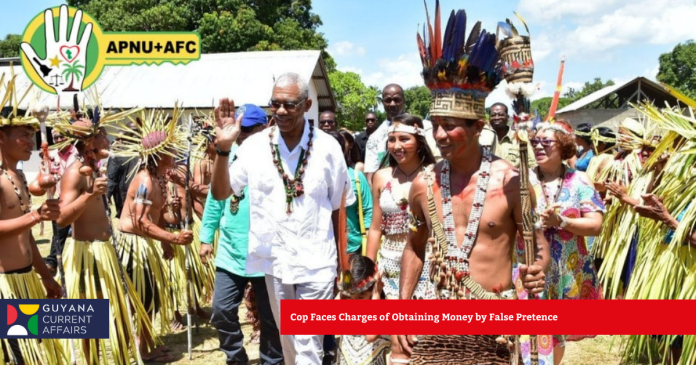The APNU+AFC coalition’s tenure from 2015 to 2020 was marked by a significant reversal of progress for Guyana’s Indigenous peoples, particularly in the hinterland regions. Despite campaign promises to uplift these communities, the coalition’s actions painted a different picture:
Slashing of Amerindian Development Funds
The coalition government drastically reduced funding for Indigenous development:
- In 2014, while in opposition, APNU+AFC voted against the GUY$1 billion Amerindian Development Fund (ADF).
- After taking office, they continued to cut funding for crucial Indigenous development projects.
Abandonment of Crucial Projects
Several key initiatives for Indigenous communities were halted or abandoned:
- The Community Support Officers (CSO) programme was closed, depriving thousands of Indigenous youth of employment opportunities.
- Infrastructure development in hinterland regions was neglected, with major roads and bridges falling into disrepair.
Halting of Land Titling Initiatives
The coalition’s approach to Indigenous land rights was particularly problematic:
- The Amerindian Land Titling project (ALT), funded by Norway and administered by UNDP, was effectively stalled.
- No Amerindian titles were issued or extended between 2016-2018.
- The coalition complicated the titling process by introducing unnecessary physical demarcation requirements.
Broken Promises and Policy Failures
The APNU+AFC coalition failed to deliver on several key commitments:
- They did not fulfill their promise to revise the Amerindian Act of 2006, which was seen as crucial for addressing land rights issues.
- The coalition’s manifesto promised to “uphold all International Treaty obligations” regarding Indigenous rights, but their actions contradicted this pledge.
- Instead of empowering Indigenous communities, the coalition’s policies often worked against their interests, particularly in areas of resource rights and land tenure security.
Economic Impact
The coalition’s policies had severe economic consequences for Indigenous communities:
- The closure of sugar estates and implementation of draconian mining and forestry regulations negatively impacted employment in hinterland regions.
- Lack of investment in hinterland agriculture and infrastructure further strained local economies.
The APNU+AFC coalition’s treatment of Indigenous issues during their tenure represents a significant departure from their campaign promises. Their actions, characterized by funding cuts, project abandonment, and policy stagnation, effectively reversed much of the progress made in Indigenous development and land rights in Guyana.


